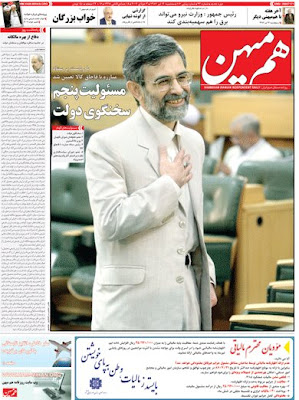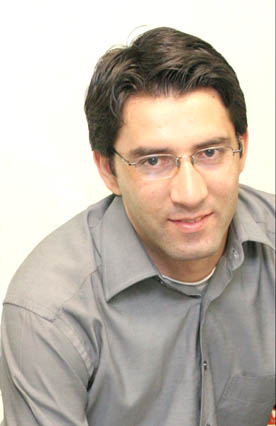Brain Drain

Iranians are known worldwide as talented and smart people, especially in the fields of science and technology. They reside in most parts of the world and are employed by top American and European universities and companies.These universities and companies use the expertise of these Iranian scientists in gaining economic and scientific benefits. In other words, these expatriates are helping other countries overcome their technological, economic and educational problems.Every year, developed countries allocate millions of dollars to accelerate the immigration of internationally educated professionals to their countries and use their skills and specializations in different fields for the welfare of their own communities.Last week Alia Sabur, a 19-year-old Iranian-American, was declared the world’s youngest professor in history by the Guinness Book of World Records. Alia broke the 1717 record set by a student of physicist Isaac Newton, Colin Maclaurin.There are many examples of such talented Iranians bringing honor to their country of origin.In 2007, three Iranians were among the list of top 100 living geniuses compiled by a panel of six experts in creativity and innovation from Creators Synectics, a global consultant firm.Engineer Ali Javan, physicist Nima Arkani-Hamed and biological anthropologist Pardis Sabeti were respectively ranked 12th, 32nd and 49th of this list.In 1975, Professor Javan (born 1926) received from the Optical Society of America its most prestigious honor, the Fredric Ives Medal, with a citation that praised him for “producing an optical device (the gas laser) of unparalleled applicability to scientific research“. In 1993, he received the Albert Einstein World Award of Science. Arkani-Hamed (born 1972) is a leading theoretical physicist with interests in high-energy physics, string theory and cosmology. He officially joined Harvard’s faculty in the fall of 2002. In the summer of 2005 while at Harvard, he won the ’Phi Beta Kappa’ award for teaching excellence.Sabeti (born 1975) is an evolutionary geneticist, who developed an algorithm that helped establish the effects of genetics on the evolution of human diseases. He is an assistant professor in the Center for Systems Biology and Department of Organismic and Evolutionary Biology at Harvard University.So why Iran does not employ these talented people to help develop the country in the scientific and technological fields? Unfortunately, the number of educated young Iranians trying to leave the country appears to have increased in the past years judging by the numbers sitting for the International English Language Testing System (IELTS) exam--a requirement for immigration to countries like Canada and Australia. And the cost to Iran of not stemming this brain drain--one government estimate put it at nearly $40 billion a year. Iran tops the world in terms of brain drain. That’s the conclusion of the International Monetary Fund, which recently surveyed 61 countries. The IMF says every year more than 150,000 educated Iranians leave their country in the hope of finding better educational, working and living conditions abroad.In fact, Iran is educating millions of its youth to serve the advanced countries.The reality is that the scientific and economic gap between Iran, as a third-world nation, and advanced or `North’ countries is wide and prospects for filling this distance in the near future appear dim. If more research facilities are provided and livelihood problems of researchers are seriously addressed in a way that they would feel free to produce science and new ideas inside Iran, brain drain will slow down. These facilities, combined with the inherent interest of Iranians in family bonds, will certainly act as a brake to dissuade some from leaving the country. However, the trend will not grind to a complete halt. Therefore, the officials should take measures for promoting the social and scientific status of scientists. They must also clear the way for researchers, who are determined to leave the country and continue their studies in other countries, to establish a kind of human rapport and cooperate with their homeland in future.
Labels: Brain Drain, Guinness, iran




